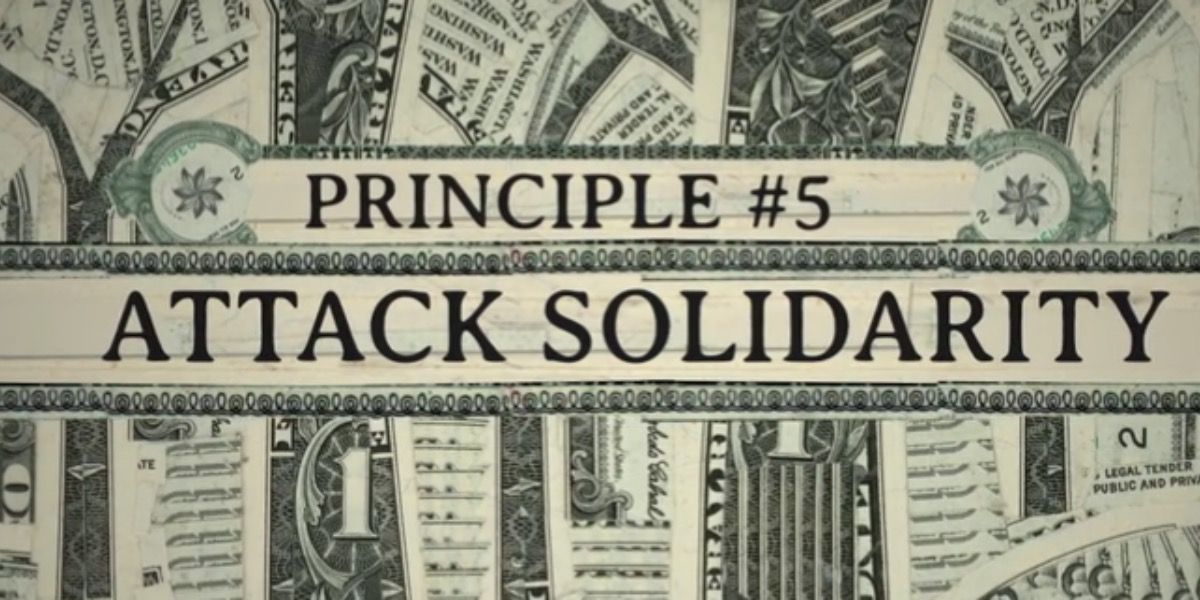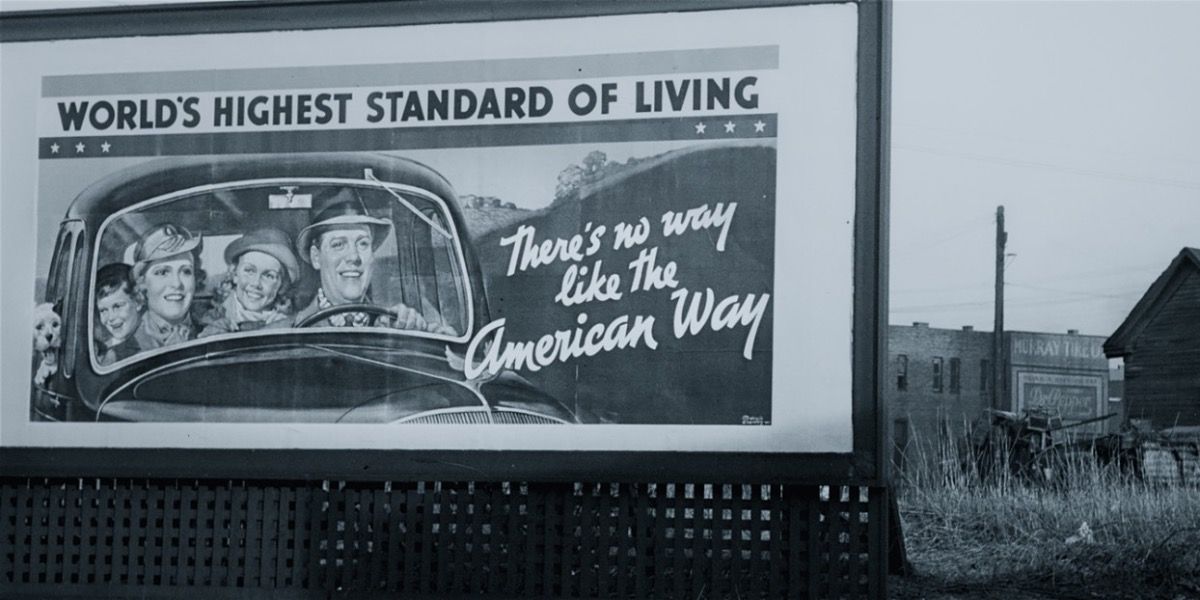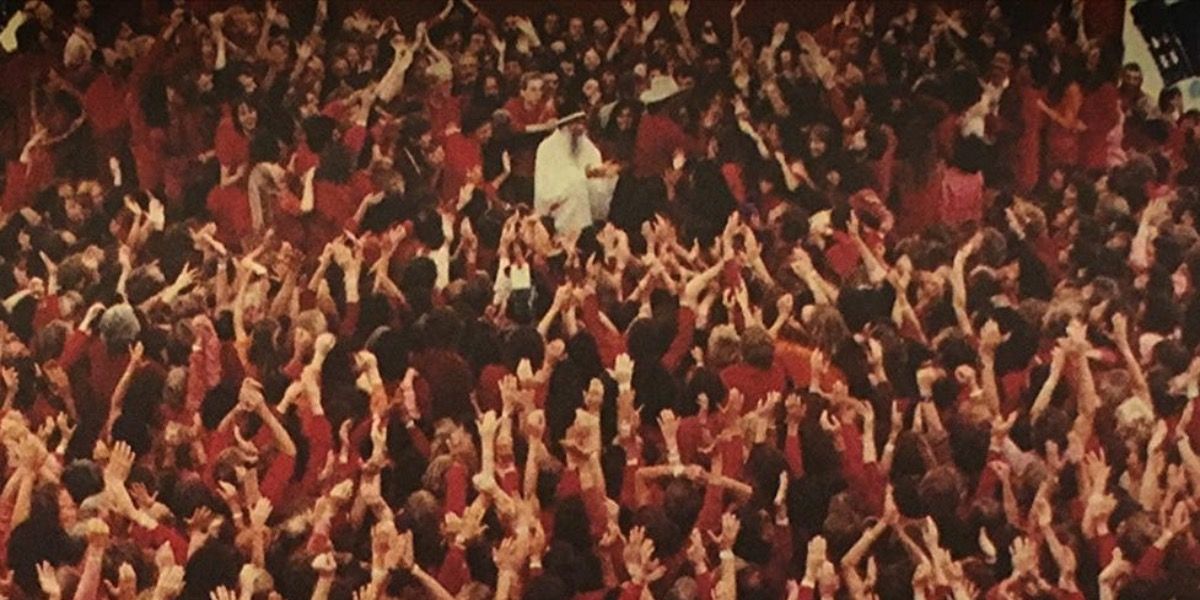The Social Dilemma is a documentary film that came just as the 2010s concluded. Its scrutinization of the social media industry, especially its major players, through the accounts of former business executives at Twitter, Instagram and so on, raised the eyebrows of countless viewers, many of whom clung to their phones and expressed outrage through the very vehicles criticized in the film.
Undoubtedly, The Social Dilemma is a rather shocking film to the average casual viewer, although much of the subject material is common knowledge in certain circles of academia or for those employed in related fields. Similarly, these other 2010s documentaries listed will shock the 'casual' viewer, but all need to be watched.
The Social Dilemma
The 2020 documentary film premiered at the Sundance Film Festival then was released to the masses on Netflix. Along with business executives, filmmakers interview scholars in psychology, anthropology and several other fields, as well as activists dedicated to spreading awareness regarding the negatives of such platforms.
The information one walks away with after the film is certainly substantial. However, the theatrical portions of the film are criticized for being cringingly tacky, softening the greater blow and message of the film with both sappiness and imposed humor, specifically on the part of Vincent Kartheiser. Nevertheless, the documentary is worth the watch for its interviews and exposure of the inner-workings of some of the "richest corporations to exist in human history."
Planet Of The Humans
Director of Planet of the Humans, Jeff Gibbs, had worked with executive producer Michael Moore on some of Moore's past directorial projects, including Fahrenheit 9/11 and Bowling for Columbine. In the film, Gibbs examines the current green energy movement and its potential flaws.
Critics of Gibbs' film challenge that it's lost in outdated evidence regarding solar and wind energy, while wrongfully vilifying the movement, as well as some of its predominant leaders, like Bill McKibben. However, several of Gibbs' critics validate certain aspects of his documented pursuit. For instance, an article in Yale Climate Connections highlights how Gibbs' made "a valid critique of wood biomass," which is under-recognized by the general public, and a predominant topic in Planet of the Humans. Despite its shortcomings, Gibbs' work has a level of value and legitimacy that shouldn't be counted out.
Blackfish
Coming in the earlier part of the 2010s, some viewers may have forgotten or missed out on Blackfish. The documentary film examines the present domestication of orcas, as well as the 'lucrative' industry's history.
The film's core focus is Sea World and their iconic killer whale Shamu, and Tilikum, who killed trainer Dawn Brancheau during a performance. The tragic story was a highly publicized case in 2010 and in later years, yet Sea World still performs with orcas to this day. Director Gabriela Cowperthwaite does an incredible job of composing and projecting a significant, but under-recognized flaw in modern society.
Inventor: Out For Blood In Silicon Valley
This HBO documentary follows the rise and fall of former American businesswoman, Elizabeth Holmes, who acted as CEO of Theranos, a fraudulent health technology company that raised billions of dollars worth of funding for an unfeasible portable blood analyzer that would essentially "change the world of medicine."
The film uses accounts from journalists who were frequent interviewers of Holmes and company insiders to articulate a tale of mass-seduction and corruption. The film includes an interview with the legendary Errol Morris, and director Alex Gibney is excellent at webbing the series of events together to make a provocative, informative picture.
Requiem For The American Dream
In this film, legendary political activist, scholar and author, Noam Chomsky, breaks down the current economic climate in the U.S. using The 10 Principles of Concentration of Wealth & Power, which is the title of Chomsky's 2017 book.
Some may find Chomsky's outlook on the current world disturbing and bleak. However, readers of his work will be well-versed in much of the film's subject material and may find the film to be somewhat of a visual summary, similar to Manufacturing Consent, the title of a 1992 documentary centered around Chomsky. It's also one of the principles described in the film. Chomsky is an intellectual voice greatly suppressed by mass media, and unfortunately, his rich perspective hasn't reached as many ears as it should.
13th
Directed by Ava DuVernay, 13th is a documentary that explores racial inequality in the U.S., holding a particular lens to the decades following the Civil Rights Movement of the 60s.
Although Black Americans, political activists, and well-read scholars are well aware of the atrocities committed against the Black community in terms of mass incarceration and unfair treatment from courts and police, a casual viewer or young person will find many of the details and events portrayed in 13th as utterly shocking and reprehensible.
American Murder: The Family Next Door
This true-crime Netflix documentary is innovative in the way that the audience is given a first-person perspective as a result of the use of surveillance footage, text messages and recorded conversations to compose a severely tragic case.
The intimate bond created between the viewer and the actual case is quite eerie and penetrates the emotions deeper than any theatrical portrayal could. American Murder: The Family Next Door is severely shocking and heartbreaking.
Capital In The 21st Century
This entry is another documentary focused on the U.S. economy that may shock the casual viewer. Led by director Justin Pemberton, filmmakers trace the increase in wealth inequality since the 1800s, while comparing the current economic climate to that of the Roman Empire.
Through interviews with cutting-edge experts and a cinematographic edge that resonates potently with viewers, Capital In The Twenty-First Century offers a wealth of knowledge and perspective. The documentary is based on the 2013 book written by French economist, Thomas Piketty.
Wild Wild Country
Wild Wild Country is a docu-series recollecting the first bioterror attack to occur on U.S. soil. It follows Indian guru Bhagwan Shree Rajneesh and his dedicated co-leader, Ma Anand Sheela, as they attempt to create a utopian, self-sustaining community in Wasco County, Oregon.
The cult-ish community of followers was disbanded in the late 80s. However, their community religion, Rajneeshpuram, is still being practiced in certain parts of the world today.
Fyre
Undoubtedly, many have seen this documentary as a result of its rather extensive marketing campaign and highly-anticipated release on Netflix. Be that as it may, Fyre is an astounding portrayal of fraud and mass manipulation through social media, exposing numerous influencers who perpetuated this vacation/get-away disaster.
Similar to Elizabeth Holmes, Billy McFarland seduced investors by making promises he couldn't keep. Fyre is shocking enough to warrant a rewatch.











